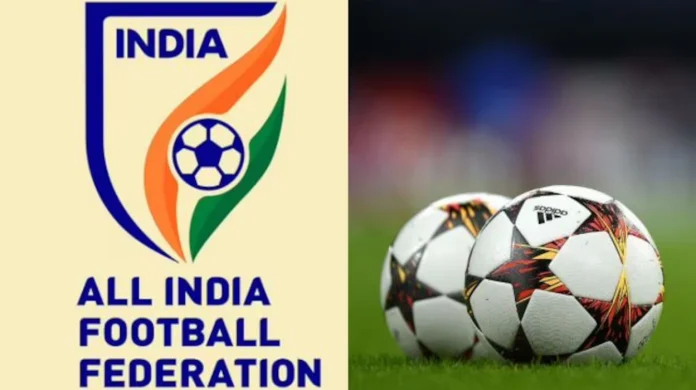The All India Football Federation (AIFF) faces a critical turning point as FIFA reiterates its demand for constitutional reform by October 30, 2025. Failure to deliver a Supreme Court–approved and FIFA-compliant constitution risks triggering a full suspension, potentially stripping India of all privileges within FIFA and the Asian Football Confederation (AFC). This development marks a continuation of structural instability that has defined Indian football governance for nearly a decade.
In a joint communication delivered in mid-August, FIFA and the AFC expressed “profound concern” over AIFF’s inability to resolve legal uncertainties that paralyze its operations. The letter described an “untenable vacuum” affecting domestic scheduling, international eligibility, and ongoing commercial obligations. The situation places pressure on AIFF’s leadership, legal advisors, and affiliated clubs to resolve a politically entangled impasse without delay.
A history of suspension and instability
FIFA previously suspended India in August 2022 following what it labeled “third-party interference” when the Supreme Court appointed a Committee of Administrators to oversee AIFF reforms. Although the suspension lasted just 11 days—lifted after emergency elections restored an elected body—the warning it carried has remained largely unheeded.
Subsequent efforts to finalize a revised constitution fell into judicial review, delaying implementation. AIFF officials contend that delays stem from the need to align both international statutes and India’s judicial norms, yet FIFA’s stance remains firm: member associations must function independently of government or judicial involvement.
Current deadline and escalating stakes
The October 2025 ultimatum calls on the Supreme Court to sign the final draft of AIFF’s revised constitution and for the unconditional adoption of the same by the federation’s General Assembly. If this doesn’t materialize, the AIFF can again be suspended by FIFA–this time with longer-lasting and more damaging consequences including withdrawal of development funding, bans from continental competitions and loss of voting privileges in the global football governance structure.
Impact on Indian football ecosystem and stakeholders
The most obvious victims of AIFF’s governance crisis are India’s football players. The Indian Super League (ISL), which is governed in part by the AIFF, has seen a number of clubs put off a renewal of contracts and suspend operations due to the lack of clarity over scheduling and registration of players. According to FIFPRO’s 2025 figures, at least 40 players have been the subject of premature contract terminations or pay disagreements since the start of the year.
This stagnation affects player development with national team preparations and grassroots tournaments left in a state of disarray. The halt to planning cycles means many young players, particularly from the regional league, are unable to get playing time and opportunities for growth in the game.
Financial and organizational vulnerabilities
The AIFF’s long-term commercial partner Football Sports Development Limited (FSDL) has also raised concerns over the sustainability of the renewal of the Master Rights Agreement (MRA) that subsidizes league operations and marketing. With the existing agreement due to expire in December 2025, broadcasters, venue contractors and sponsors are reluctant to make an investment due to concerns about reputational and regulatory risk.
Major infrastructure projects such as stadium upgrades and privately funded youth academies have ground to a halt as questions remain about the legal basis for the federation’s authority over football. In fact, the vacuum extends to state football associations, many of which depend on AIFF coordination for the sanctioning of competitions and release of funds.
FIFA’s tough stance and its limits
As is clearly stated in FIFA’s statutes, there is no room for any external legal or political interference into the activities of its member associations. However, in the case of India, the judiciary’s role as a guarantor of constitutional reform is a complicating element to this principle. Third-party intervention as defined by FIFA’s framework is properly subject to judicial review by the Supreme Court, which in domestic practice is regarded as essential to the governance of fair play, transparency and due process.
This tension underlines the shortcomings of the one-size-fits-all rules of governance in the context of legal systems like India’s. Findings: Critics claim that FIFA’s insistence on strict independence does not accommodate national contexts and threatens to destabilize federations already in the process of reform.
Need for collaborative governance
The recurring crises in AIFF indicate that enforcement is more than enough. Much of FIFA’s response has been around compliance rather than capacity building. Without a greater interaction with national juridical institutions and more personalized technical assistance, reform demands are likely to be seen as externally forced as opposed to internally motivated.
The lack of collaborative structures adds to a pattern of conflict in which federations fail to meet expectations time after time without having the institutional capacity to overcome core problems. New football nations need not only to be governed, but also to be enabled in terms of structural stability.
AIFF’s reform timeline and political environment
While the present AIFF management has openly promised reforms, its room for maneuvering in the complicated political milieu continues to be limited. Questions between legal advisers, federation officials and the Supreme Court are an ongoing process, but sources say that a final ratification could fail to meet FIFA’s deadline unless speeded up.
Reports are now indicating that FIFA might send a monitoring team in October to evaluate progress on the ground. Whether officially established or not, such a step would provide FIFA with a way to measure intent and offer some flexibility on timing (especially if the draft constitution is partially cleared by the judiciary before the General Assembly).
The AIFF saga has become a study in the friction of global governance. At its heart is a conundrum which many growing football federations recognize: how to reconcile international aspirations with domestic legal legitimacy. As we enter the fateful last few weeks before the FIFA deadline, the success or failure of this procedure may well voice the future of Indian football for the next decade. What follows will also reveal how FIFA adjusts its governance model in a multipolar world in which sport and sovereignty increasingly overlap.












